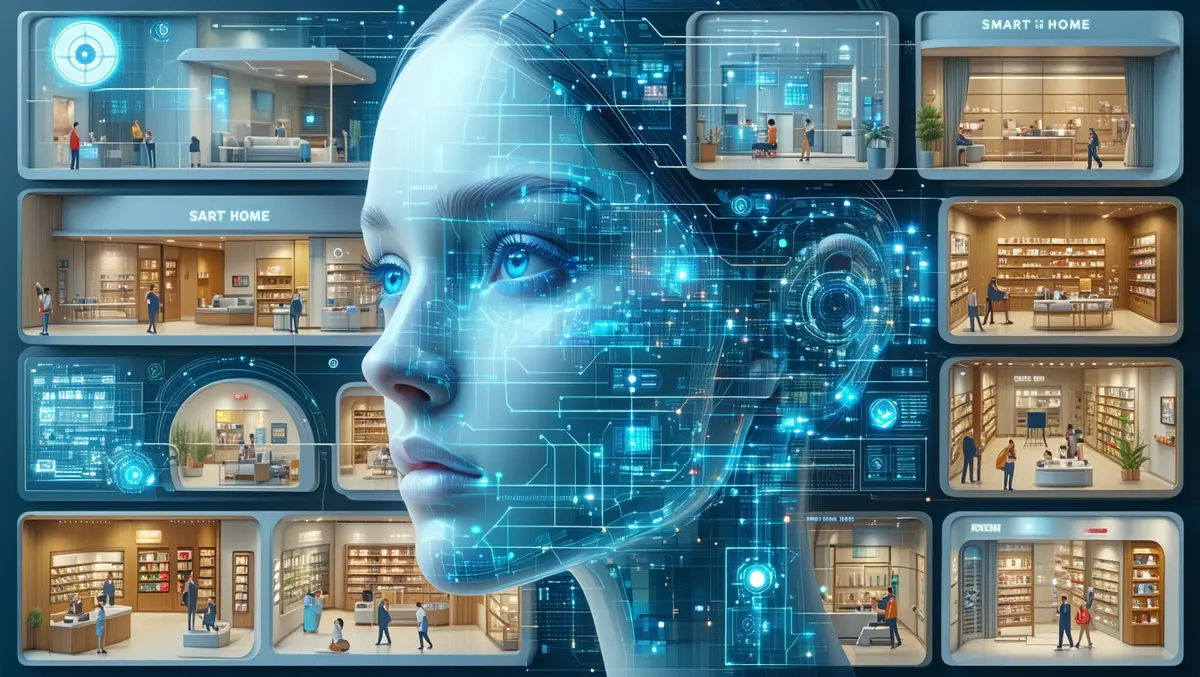
AI agents revolutionising life across multiple sectors
AI agentic tools, which are capable of thinking, learning, and making decisions based on data processing, are transforming personal, commercial, and industrial activities across various sectors.
Raphael Allstadt, Chief Executive Officer of the AI notetaker platform, tl;dv, provided an overview of how AI agents are reshaping several aspects of daily life. He highlighted how smart homes and Internet of Things (IoT) devices are evolving with AI integration. "AI is already starting to seamlessly integrate into our homes, optimising things like lighting, heating and security based on personal habits. In the future, we could see smart appliances anticipating user needs, such as a fridge suggesting recipes based on ingredients that are inside, or ordering groceries when certain ingredients are low. AI-powered security systems may also enhance safety by detecting unusual activity early and sending alerts to homeowners in real time."
Allstadt predicts significant advances in personal assistant technologies such as Siri, Google Assistant, and ChatGPT, noting their broader functionalities. "AI-powered assistants like Siri, Google Assistant and ChatGPT will expand beyond just answering questions, they'll help you manage schedules, draft and summarise emails, set reminders, and automate routine tasks by handling repetitive and time-consuming activities. AI will also enhance workplace productivity by summarising meetings, organising documents, and assist in real-time collaboration to help teams work more efficiently by streamlining communication."
The transportation sector is also set to benefit from AI advancements with smarter travel experiences. "Travelling will become more efficient with the help of AI agents, offering real-time traffic updates, weather-based route adjustments, and predictive maintenance alerts for vehicles, which will enhance overall safety and may even save drivers money in the long run. Autonomous vehicles will become more common, transforming commutes and reducing accidents and congestion. These vehicles are capable of sensing their environment through a series of sensors that collect inputs from Google Street View and video cameras inside the car without human involvement," explained Allstadt.
The e-commerce sector is witnessing a shift towards personalised shopping experiences, predicts Allstadt. "Online shopping is likely to become a lot more personalised, as e-commerce sites will leverage AI agents to provide better recommendations based on browsing history and past purchases. Virtual try-on experiences will become more widespread, allowing customers to preview a multitude of things before purchasing, including clothes, makeup, and furniture. As more companies develop their own AI shopping experiences, features such as voice-activated shopping, real-time price tracking, enhanced security, and fraud detection are likely to become standard."
In health and wellness, AI agents have started transforming care delivery through wearable technology. "AI agents are already revolutionising the health and wellness space, through wearable devices such as smartwatches that continuously monitor health data. These may advance to provide early warnings for potential issues such as diabetes, cardiac conditions, and respiratory diseases. Additionally, AI will enhance fitness routines by tailoring plans and suggesting nutrition strategies based on personal goals and health data. This seamless integration of AI in the health sphere might encourage people to have a more proactive approach to their fitness and wellbeing," said Allstadt.
Entertainment services, such as streaming platforms, are integrating AI to refine content recommendations, according to Allstadt. "Streaming services have already integrated AI into their offering, to provide improved personal content recommendations, which makes it easier for users to discover new music, movies, and books. Virtual or CGI influencers and AI-generated newsreaders may also become more prevalent, reshaping the way people consume digital media."
In the realm of social and communication platforms, Allstadt notes the role of AI in enhancing the consumption of written content. "AI has already proved itself as a useful tool for improving communication by summarising long texts and emails. This offers users quick insights without the need to read through lengthy content or documents. It's also likely that AI will be utilised for moderating social media content to detect harmful content, spam and misinformation to create safer online spaces."
Allstadt also emphasised the role of AI in finance and money management. "AI-powered finance tools will help people track their spending habits more effectively. These tools will be able to provide practical budgeting advice and suggest personalised strategies based on real-time trends. Additionally, banks and financial businesses will use AI to detect fraud and identify suspicious transactions instantly to enhance their safety and security offering to prevent the increase of financial crimes."


